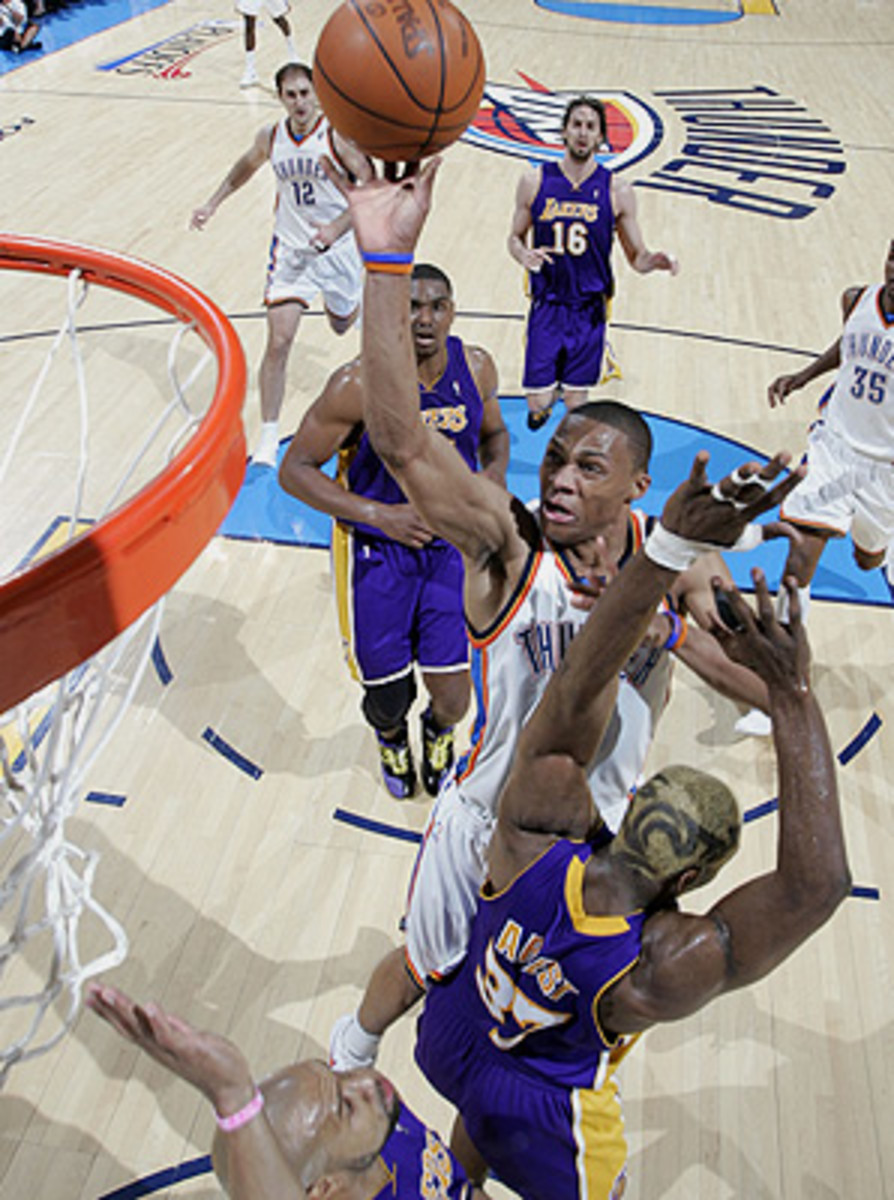Fast Breaks: L.A.-OKC, Game 4
• A lack of effort doomed the Lakers. You would think after coughing up a fourth-quarter lead in Game 3, the Lakers would be motivated to bounce back. But after winning all the series' previous first quarters, L.A. was tagged for 29 points in the first in Game 4, falling behind by 12. Ron Artest combined poor shooting (2-for-9) with bad selection, launching ill-advised jump shots that weren't close to connecting. Pau Gasol (13 points) was truly awful. Gasol was aggressive offensively but he gave Jeff Green (15 points) a wide cushion on the perimeter and lazily pursued rebounds, when he did elect to pursue them. The Thunder may be the NBA's youngest team, but they are also its most energetic. They overwhelmed the Lakers in fast-break points (24-2) and outworked them to the tune of a 23-16 edge in second chance points. L.A. has to find a way to match that energy in Game 5.
• The Thunder's bench stepped up. The numbers (a 43-35 advantage in bench points) are impressive but they only tell half the story. With both Kevin Durant and Russell Westbrook on the pine to start the second quarter, Oklahoma City's reserves played four minutes, extending the 12-point first quarter lead to 14 before Westbrook re-entered the game. James Harden (15 points) and Eric Maynor (13) were aggressive and didn't sit on the cushion. The Thunder's ability to not only maintain, but to grow that lead with their two stars on the bench was a major turning point.
• Production in the pivot. Center is widely considered the Thunder's biggest weakness. But the trio of Nenad Krstic, Nick Collison and Serge Ibaka combined for 19 points and 14 rebounds, while playing tough D on Gasol and Andrew Bynum (13 points). Like most of Oklahoma City's role players, Krstic, Collison and Ibaka know their weaknesses. They don't try to do too much, have diverse skills (Krstic, shooting; Collison, banging; Ibaka, shot blocking) that blend well in Scott Brooks' rotation.
• L.A. needs to find its stroke. What happened to the Lakers' jump shooters? For the second straight game L.A. was horrific from beyond the three-point line, connecting on 18.2 percent of their treys, a sizeable dip from an already bad 32.3 percent (on 31 attempts) in Game 3.
"We have our hands full with all the defensive pressure they put on us," said Artest.
Said Brooks, "We really made them miss some shots."
After the game, the Lakers sounded like a team convinced a return home will solve all their problems. But unless the Thunder's swarming D slows -- and as one the top defensive teams in the regular season, that's doubtful -- the Lakers will have to fight to get their points in Game 5.





